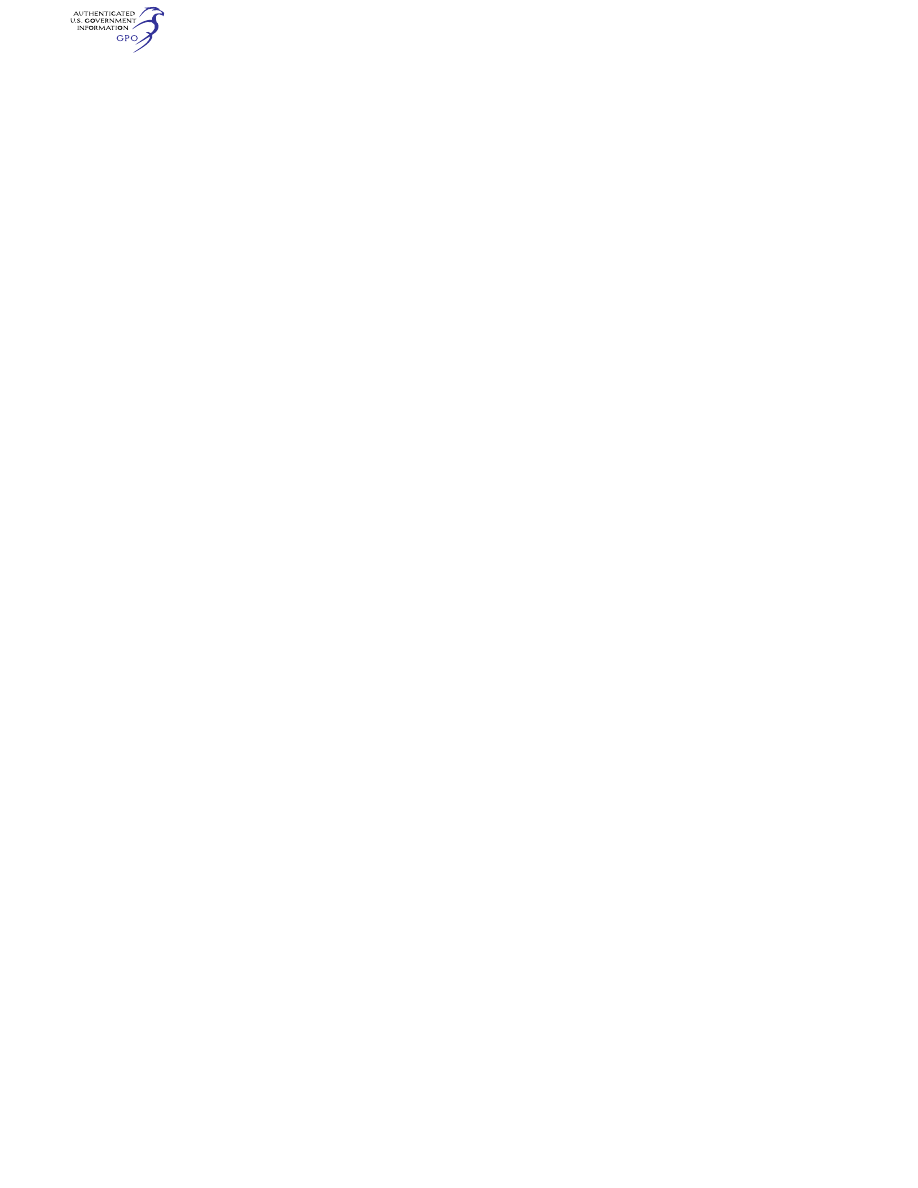
763
Federal Aviation Administration, DOT
Pt. 36
cross-references to the Airworthiness Limi-
tations section of the manual must also be
included. In addition, the applicant must in-
clude an inspection program that includes
the frequency and extent of the inspections
necessary to provide for the continued air-
worthiness of the propeller.
(7) Troubleshooting information describing
probable malfunctions, how to recognize
those malfunctions, and the remedial action
for those malfunctions.
(8) Information describing the order and
method of removing and replacing propeller
parts with any necessary precautions to be
taken.
(9) A list of the special tools needed for
maintenance other than for overhauls.
(b)
Propeller Overhaul Section.
(1) Dis-
assembly information including the order
and method of disassembly for overhaul.
(2) Cleaning and inspection instructions
that cover the materials and apparatus to be
used and methods and precautions to be
taken during overhaul. Methods of overhaul
inspection must also be included.
(3) Details of all fits and clearances rel-
evant to overhaul.
(4) Details of repair methods for worn or
otherwise substandard parts and components
along with information necessary to deter-
mine when replacement is necessary.
(5) The order and method of assembly at
overhaul.
(6) Instructions for testing after overhaul.
(7) Instructions for storage preparation in-
cluding any storage limits.
(8) A list of tools needed for overhaul.
A
35.4
AIRWORTHINESS LIMITATIONS SECTION
The Instructions for Continued Airworthi-
ness must contain a section titled Airworthi-
ness Limitations that is segregated and
clearly distinguishable from the rest of the
document. This section must set forth each
mandatory replacement time, inspection in-
terval, and related procedure required for
type certification. This section must contain
a legible statement in a prominent location
that reads: ‘‘The Airworthiness Limitations
section is FAA approved and specifies main-
tenance required under §§ 43.16 and 91.403 of
the Federal Aviation Regulations unless an
alternative program has been FAA ap-
proved.’’
[Amdt. 35–5, 45 FR 60182, Sept. 11, 1980, as
amended by Amdt. 35–6, 54 FR 34330, Aug. 18,
1989]
PART 36—NOISE STANDARDS: AIR-
CRAFT TYPE AND AIRWORTHI-
NESS CERTIFICATION
Subpart A—General
Sec.
36.1
Applicability and definitions.
36.2
Requirements as of date of application.
36.3
Compatibility with airworthiness re-
quirements.
36.5
Limitation of part.
36.6
Incorporations by reference.
36.7
Acoustical change: Transport category
large airplanes and jet airplanes.
36.9
Acoustical change: Propeller-driven
small airplanes and propeller-driven
commuter category airplanes.
36.11
Acoustical change: Helicopters.
36.13
Acoustical change: Tiltrotor aircraft.
Subpart B—Transport Category Large
Airplanes and Jet Airplanes
36.101
Noise measurement and evaluation.
36.103
Noise limits.
36.105
Flight Manual Statement of Chapter
4 equivalency.
36.106
Flight Manual statement of Chapter
14 noise level equivalency.
Subpart C
[
Reserved
]
Subpart D—Noise Limits for Supersonic
Transport Category Airplanes
36.301
Noise limits: Concorde.
Subpart E
[
Reserved
]
Subpart F—Propeller Driven Small Airplanes
and Propeller-Driven, Commuter Cat-
egory Airplanes
36.501
Noise limits.
Subpart G
[
Reserved
]
Subpart H—Helicopters
36.801
Noise measurement.
36.803
Noise evaluation and calculation.
36.805
Noise limits.
Subparts I–J
[
Reserved
]
Subpart K—Tiltrotors
36.1101
Noise measurement and evaluation.
36.1103
Noise limits.
Subparts L–N
[
Reserved
]
VerDate Sep<11>2014
12:50 Apr 30, 2019
Jkt 247046
PO 00000
Frm 00773
Fmt 8010
Sfmt 8006
Y:\SGML\247046.XXX
247046
spaschal on DSK3GDR082PROD with CFR